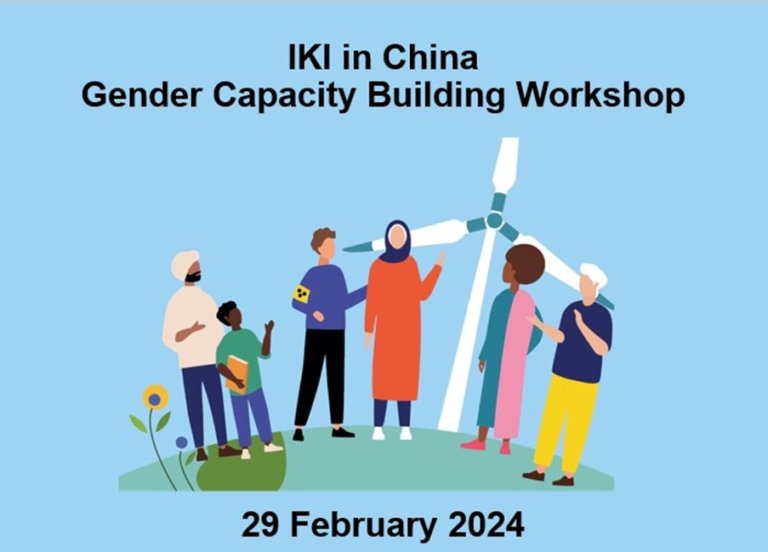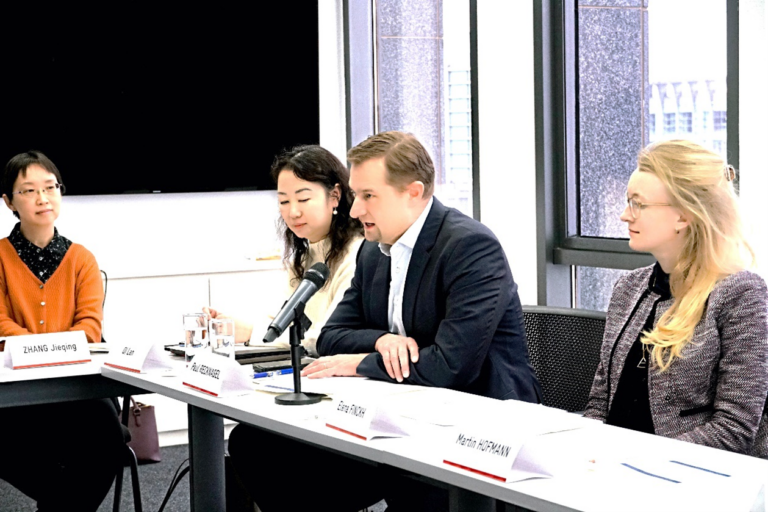GIZ China supported the German embassy in Beijing and the German Foreign Office in jointly holding a meeting on “A Just Transition Towards Carbon Neutrality” on March 25, 2021 in cooperation with the Chinese environmental think-tank “Greenovation Hub”, the Beijing Institute of Green Finance and Sustainable Development, and the global climate partnership “Climate Transparency”.
After H.E. Dr. Clemens von Goetze, Ambassador of the Federal Republic of Germany in Beijing, opened the event, Mr. Norbert Gorißen, Deputy Director General at the German Federal Ministry for the Environment (BMU), and Mr. Sun Zhen, Deputy Director-General at the Ministry of Ecology and Environment (MEE), shared their views on the current Sino-German cooperation in the climate field and emphasized the importance of good cooperation.
Thereafter, experts from Germany and China presented German experiences from the coal phase-out in the Ruhr area and talked about challenges of the low-carbon transition in China. Mr. Manfred Fischedick, Scientific Managing Director at the Wuppertal Institute for Climate, Environment and Energy, emphasized the importance of clearly defined visions and goals during the hard coal mining phase-out. He further stressed the significance of a clear policy structure and a transformation strategy that includes public and private stakeholders in the area. Mr. Guo Hongyu, Assistant Program Director, Greenovation Hub, advocated for the implementation of policies and financial support mechanisms for a fair and structured transformation of the energy industry to reduce the risks of unemployment and non-performing assets.
Ms. Zhang Fang, Consulting and Project Research Manager, Institute of Finance and Sustainability, presented the results of the research project “Shanxi Finance Supports Green and Low-Carbon Transition”. She stated that achieving carbon neutrality will be a difficult task, and that financial institutions will play an important part in doing so. She emphasized the importance of using digital technology to support finance institutions in developing their green finance sector and managing associated risk, as well as supporting financial institutions through capacity building and international cooperation. Ms. Zhang further introduced three key initiatives for a successful energy transformation, starting with identifying green business opportunities, increasing support for green and low-carbon industries, encouraging businesses to invest in sustainable and low-carbon strategies and providing exit strategies for enterprises in high-emission industries.
The inputs from Chinese and German experts were followed by a panel discussion on how innovative policy, finance and stakeholder approaches can ensure a just energy transition in China’s and Germany’s coal regions.
Ms. Marie-Luise Schaller, Innovation Project Manager, Rhenish Mining Area Future Agency (Zukunftsagentur Rheinisches Revier), said that all relevant parties should be encouraged to participate in the transformation process of coal regions, and that the transformation should be implemented through a combination of top-down and bottom-up strategies.
Ms. Zhang Yan, General Manager of Strategic Synergy Department of Shanxi Financial Investment Holdings Limited, highlighted the guiding role that green finance actors must play in countering market failures, which may occur if investors focus on higher return investment in carbon intensive industries without considering the social and environmental cost of investments.
Concluding, Mr. Lin Mingche, Director of China’s Climate and Energy Policy of the Natural Resources Protection Association, said that Shanxi Province has been actively learning from other provinces’ best practices in coal control and energy transformation. Germany and China will continue to share strategies and best practices concerning the transformation of their energy systems, especially concerning the coal phase-out in traditional mining regions.



